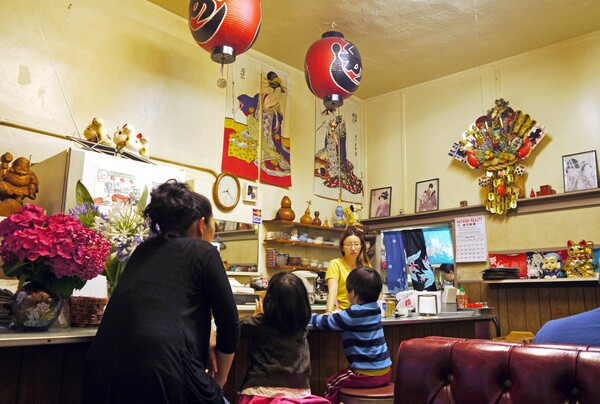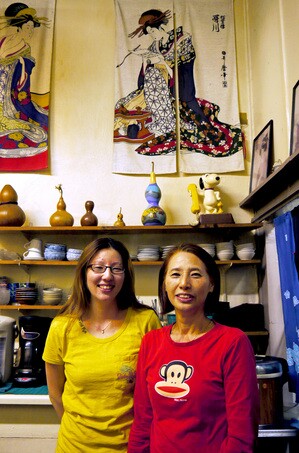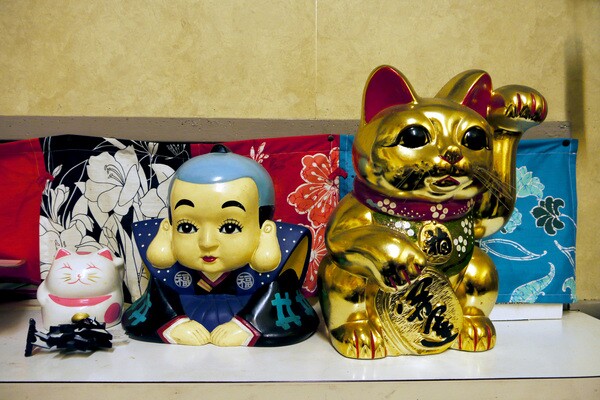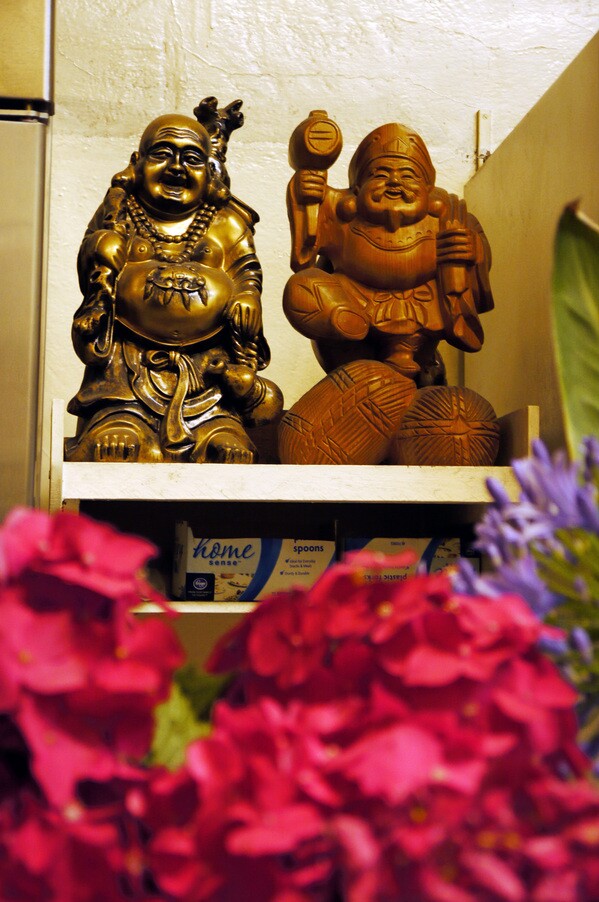Otomisan: The Last Japanese Restaurant in Boyle Heights

Otomisan is the only remaining Japanese Restaurant in Boyle Heights. Decades ago the now heavily-Latino neighborhood was home to a large Japanese population, party due to its proximity to Little Tokyo, and there are still traces of that community that remains.
Founded in 1956, the restaurant can still be found at its original location on East First Street, two blocks east of Soto. Fifty-six years later, the warm mojo of the small dining area radiates the Japanese tradition of Boyle Heights and calls you back for another tasty plate.
This is a story of family, food and neighborhood.
Yayoi Watanabe bought the restaurant seven years ago. She had already owned a dry cleaner in Boyle Heights for 15 years on 4th and Fresno. Her 30-year old daughter Judy Hayashi reminisces, "I remember always going next door to Fuji Cafe and getting some good Japanese (like home cooking)."
Fuji Café on 4th Street was one of the last remaining Japanese family eateries in Boyle Heights. When it closed after one of the owners died, Watanabe became motivated to keep Boyle Heights' Japanese tradition alive.
When one of the owners of Otomisan died a few years later and it went up for sale, Watanabe decided to buy the place and keep it open. She didn't want it to disappear like the Fuji Café, which became a Mexican restaurant.
The coziness of the space makes you feel the generations of family that have come through the doors. Between the Japanese retirement home up the street and Boyle Heights locals, the diner-style booths and counter seats stay close to full, serving up family style comfort food -- an authentic mom and pop restaurant alive in the 21st Century.
Judy works with her mother one day a week. Her father was a pioneer in the restaurant supply industry, having introduced hot towels to dining tables around Little Tokyo. Judy -- who grew up with her family in the Virgil Village area, where many Japanese had lived in the 1970s -- spent much of her youth driving with her father from restaurant to restaurant, delivering the hot new product.
Bilingual in Japanese and English with a charismatic demeanor, Judy became well known in the community as an invaluable asset to any place she worked; her versatility made her a face for Little Tokyo. Her success is not surprising, since her mother had also spent much of her time working in Little Tokyo from the 1970s on, until she started her dry cleaner business in Boyle Heights.

The connection between Boyle Heights and Little Tokyo runs down First Street. "The Japanese people that worked in Little Tokyo used to live in Boyle Heights," Hayashi says. It was kind of like an extension of Little Tokyo. Even now, there are still Japanese and Nikkei's living in the area."
One of them is her own mother, who lives a few blocks east of the restaurant near the Evergreen Cemetery and the Rissho Kosei Kei Buddhist Temple. Watanabe lives close enough to walk to work. She loves Boyle Heights and won't be moving away anytime soon.
Eastside diners are ecstatic that she's sticking around -- Otomisan serves classic traditional Japanese food in an otherwise mostly Latino neighborhood. The cozy eatery feels like a window that time forgot. The food and ambience leads customers like 38-year-old East Hollywood native Ken Montenegro to keep coming back. On the way out the door before thanking Ms. Watanabe, he told us he's been coming for years now.
Judy reminisces with her mother and shares memories of Little Tokyo. They remember a time when Nisei Week meant that the streets would be virtually impossible to walk through due to the dense crowd of visitors. It was also a place of comfort, a home away from home for many Japanese transplants as well as Japanese Americans.
"I always thought Little Tokyo was a representation of our history here in L.A," Judy says. "It was a place where the people from Japan could still celebrate where they came from and the Japanese culture. I remember walking down the street and all you could hear was mostly the Japanese language. I remember more Japanese restaurants than there are now."
Times change especially in the age of corporate chains and luxury condos. These changes make places like Otomisan that much more important. "I hope we never forget the history behind Little Tokyo and Boyle Heights," Judy says.


Additional reporting and photos by Yosuke Kitazawa


